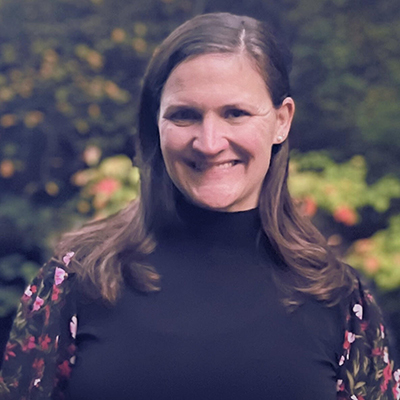 Instilling a keen interest in problem-solving and critical thinking is a goal we have for our students; but when we combine problem-solving with creativity, student learning can reach new heights. Zak Kolar, the Digital Learning Teacher at Waltham’s Plympton Elementary School, knows just how to make this happen. An avid coder since the age of 13, Zak always knew he wanted to someday work with computers. “When I was in high school, my dad mentioned an edtech company he was consulting with at the time. This sparked my interest in the field of educational technology.” It was at that point that Kolar envisioned a future where he could combine his love of technology with helping people. His future was not far off when he started unofficially helping his teachers find interesting ways to use technology to make learning more engaging. “I made suggestions to my teachers, which is pretty close to what I do as a Digital Learning Teacher now,” stated Kolar. In college, Zak decided to double major in Education and Computer Science. “As I took more education classes, I realized my calling to the teaching profession,” said Zak. “I wanted to interact with both kids and adults, so it just made sense.”
Instilling a keen interest in problem-solving and critical thinking is a goal we have for our students; but when we combine problem-solving with creativity, student learning can reach new heights. Zak Kolar, the Digital Learning Teacher at Waltham’s Plympton Elementary School, knows just how to make this happen. An avid coder since the age of 13, Zak always knew he wanted to someday work with computers. “When I was in high school, my dad mentioned an edtech company he was consulting with at the time. This sparked my interest in the field of educational technology.” It was at that point that Kolar envisioned a future where he could combine his love of technology with helping people. His future was not far off when he started unofficially helping his teachers find interesting ways to use technology to make learning more engaging. “I made suggestions to my teachers, which is pretty close to what I do as a Digital Learning Teacher now,” stated Kolar. In college, Zak decided to double major in Education and Computer Science. “As I took more education classes, I realized my calling to the teaching profession,” said Zak. “I wanted to interact with both kids and adults, so it just made sense.”
Learning with a Sprinkle of Computer Science? Yes, please!
Kolar’s unique skills of teaching and computer science are an asset to the teachers and students he serves. He has an innate ability to bring teaching and learning to a new level through embedded professional development for teachers, as well as integrated learning experiences for his students. Zak capitalizes on his own comfort level with coding to help others not to fear it. “People tend to be intimidated by computer science,” stated Kolar, who follows a co-teaching model to demonstrate its value in the learning process. One example is the use of Scratch for elementary students. When 4th graders were working on a Choose Your Own Adventure ELA project, Zak immediately connected this to conditional concepts of coding and suggested Scratch to have students create their own adventure. His ability to choose concepts of computer science that connect with various content areas helps to bring a different dimension to student learning.
Zak starts with the content first, then uses the MA Digital Literacy and Computer Science Standards as a guide to integrate computer science concepts. “DESE is aware there needs to be integration, particularly at the elementary level.” Kolar said.
Computational Thinking for All
Exposing students to computer science concepts also helps to fine-tune computational thinking skills, and supports student learning in understanding and solving problems. As a MA DLCS Ambassador, Zak knows this first-hand. In this capacity, he has helped to shape the future of education to assist schools and districts across the state become familiar with the Digital Literacy and Computer Science Framework and curricular units that integrate computational thinking standards in Elementary grades 1-6. He stays up-to-date on technology in education through resources such as the STEM+C Integration Lesson Modules by the Education Development Center, the EDC/DESE Handbook for Integrating Computational Thinking in Elementary STEM Activities, attending Scratch Educator Meetups and Computer Science Teachers Association meetings (chapters in Greater Boston and Western MA), connecting with his PLN on Twitter, and through Facebook groups such as Teachers Using Google Suite for Education and Teaching with Scratch.
Model Lesson Integration
In addition to co-teaching integrated lessons with classroom teachers, Zak collaborates with his school’s librarian to bring project-based learning to students during their Integrated Literacy block. In this capacity, professional development is combined with co-teaching through modeling curriculum-based digital projects for students in Grades 3 through 5. “Teachers see how interested the students are in their digital projects and some are starting to be comfortable doing integration on their own,” said Zak.
According to Kolar, projects where students can be creative are their favorites. “They like ways to express themselves and having flexibility in choices of tools to produce something,” he said. BookCreator, Scratch and Google Sites are a few of Zak’s go-to tools. “One project involved student research of a particular animal, creating their own website, and including a link to an organization that protects their animal. Students were amazed that this was something real they can show the world, while making a connection to why they are learning.” Kolar is also involved in the EDC pilot program at his school, A New Language for Mathematics. 2nd graders work with SNAP, a drag and drop programming language that reinforces math concepts by coding. The students work on coding puzzles, unknowingly learning math along the way. “The students don’t even know they are learning”, stated Kolar, quoting a student who remarked “Wait we forgot to do math today!” Here are some easy ways to get started from Zak!
The Future of Education
Zak’s vision for the future of education in this new decade is one of fluid integration and accessibility. “I think things will be more integrated once everyone has access to devices,” he said. He also believes technology will be more tightly embedded and will lead to more natural, project-based learning. “Technology makes it easier to create more real-world learning experiences. We may still design by hand, but will use digital tools to create the final product.” Kolar also hopes coding will fit more organically, especially at the elementary level. “Coding for learning content unlocks new potential for learning.”
Thanks to Zak, many elementary students are learning computer science concepts in their daily lessons. Congratulations from MassCUE on a job well-done!
Zak Kolar is a Digital Learning Teacher at Plympton Elementary School in Waltham, MA. He works with students and teachers to incorporate digital literacy and computer science into classes. He’s especially interested in finding ways to “sneak” CS and other digital skills into projects that fit alongside existing core curriculum and standards. Check out his website to see his blog and add-ons and follow him on Twitter at @ZakKolar.
 Print this post
Print this post



